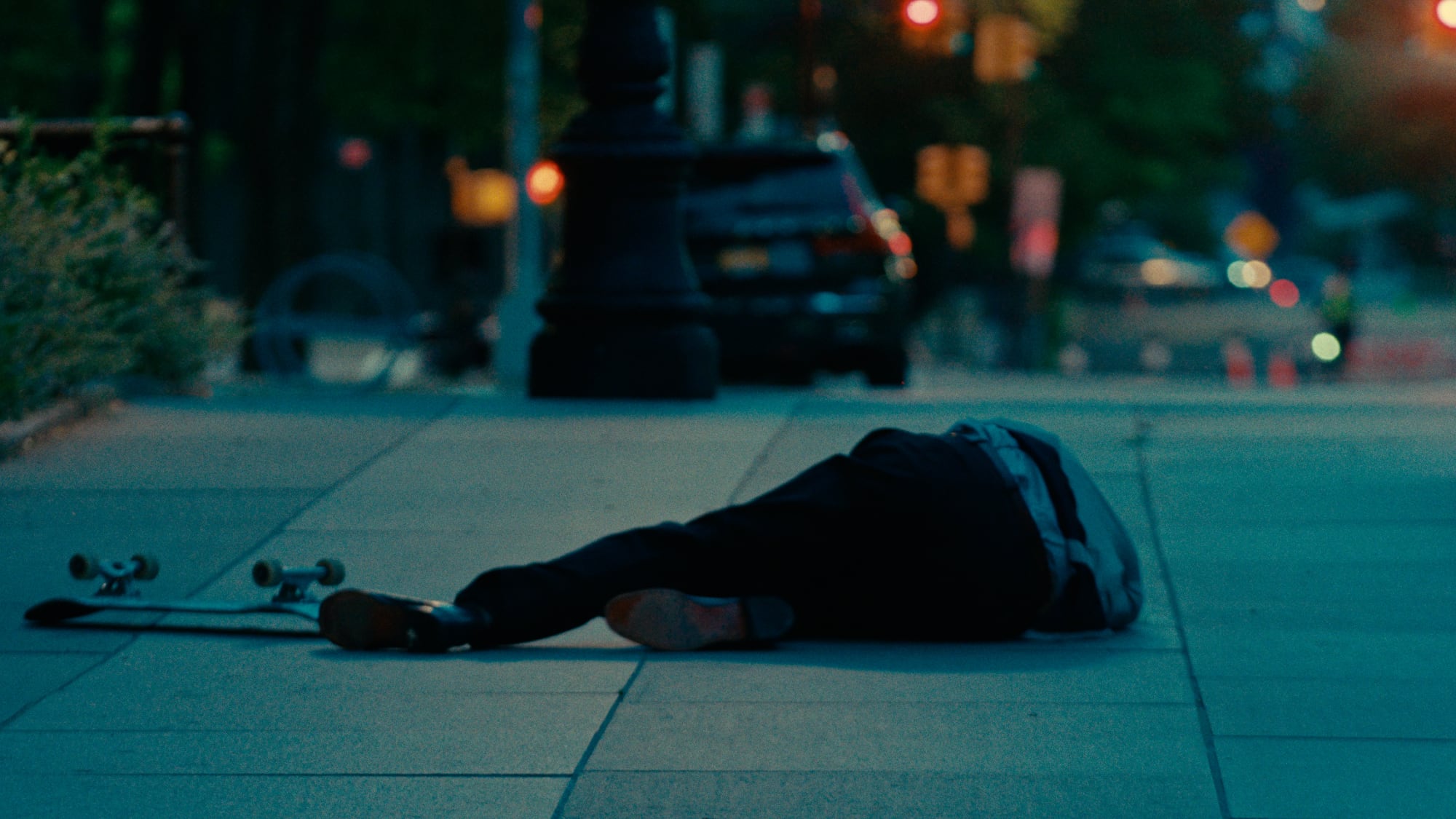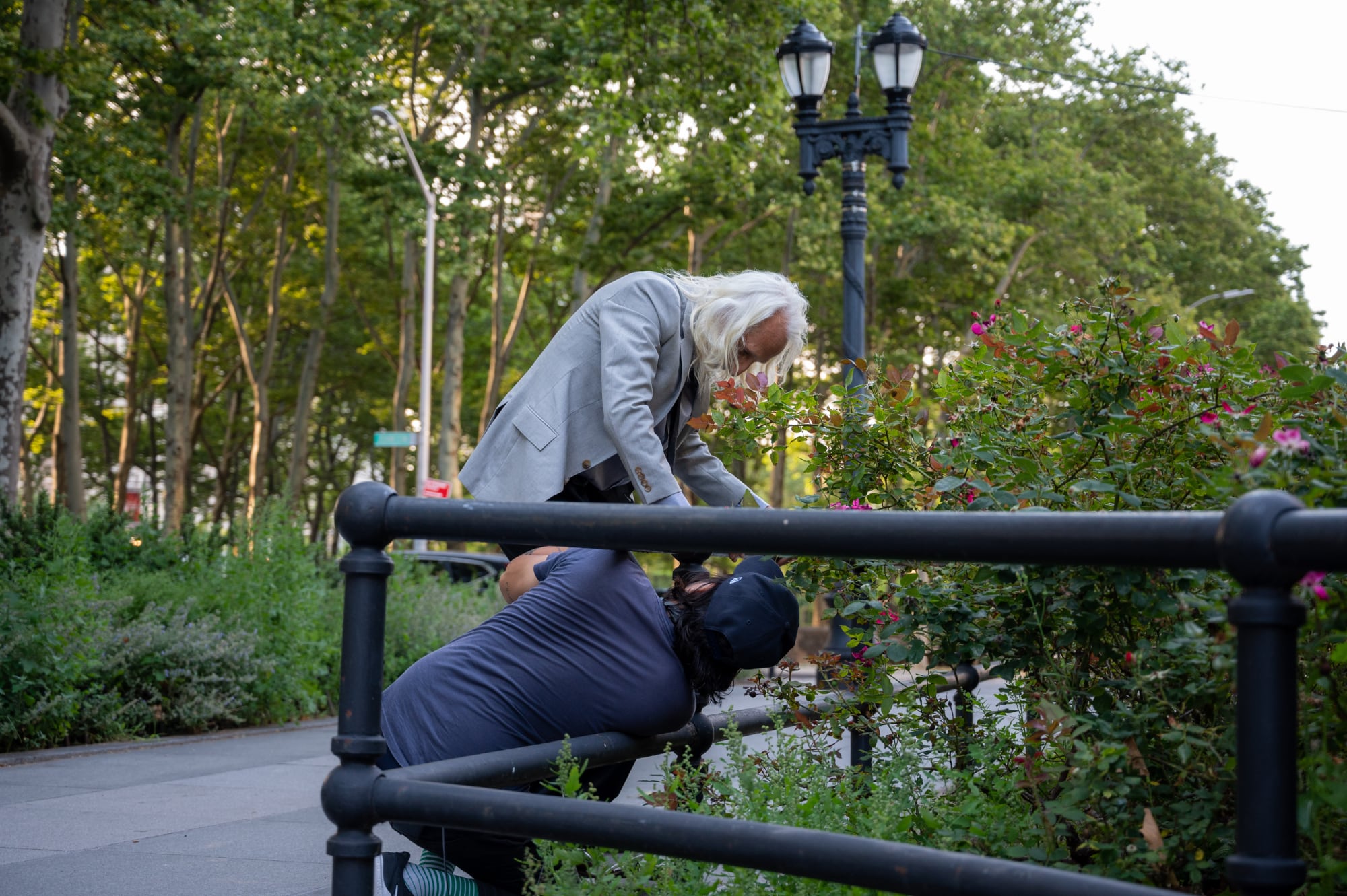
Taking his own fears and life lessons learnt from his parents Jon Ryan Sugimoto’s dark comedy short Full Time is a worryingly relatable, modern day parable about the pernicious effect adulting often has on our true passions. Previously featured on DN with his more buoyant short Gut Punch, Full Time sees an outwardly absurd yet terrifyingly mundane role ensnaring a young skateboarder fresh out of school with his whole life supposedly ahead of him. Sugimoto dug deeper into the notion of offering up a message or lesson through his work in Full Time which is certainly not a thinly veiled critique of a life dedicated to the 9-5 but rather an outright warning to not let life pass us by. Full Time, whilst not subtle in its message, carries itself narratively as Sugimoto bizarre scenario is one that will resonate deeply with anyone who wishes they had more time to pursue their passions. We spoke to Sugimoto about selecting lenses that sharply captured his boxed in worker, finding the perfect location to represent the notion of encroaching adulthood and responsibility, and shooting in reverse chronological order to accurately capture his protagonist’s physical changes.
Where did the inspiration for this not-so-subtle social commentary come from?
I was working on the story back in 2016 but couldn’t figure out some of the mechanics of the story. Once I made a few ‘adult choices’ it was clear to me that this film was a message to my younger self as a warning. I’ve had a long-standing allergy to a 9-5 life especially if you were doing something you didn’t love. There just seemed to be so much more to the world than the pursuit of stability alone. I used to see my parents go to work and come home just exhausted. There it is, all of their energy for the day gone.
Stripped down to its simplest form everyone is stuck in a box for as long as they allow it. As I got older and found passions in life there was this haunting presence of stability yearning to take them away from me. Life can be really sad when you remove passion from the table in order to put food on it. Sustaining life is necessary, but our passions really give us a reason to live. All of these feelings were still swirling around by the time I was 28 and working in an office, mind you it was creative work, but it wasn’t my work. Normally I make comedies that are meant to entertain with a dash of message, but this film was different. I made this film from the heart and it shows in its reaction. I get DMs all the time that people are still thinking about it. I guess that makes me feel like I did something right.
When you land it it’s very beautiful to watch and when you don’t land it it’s very violent, so that worked very well to tell the story visually.

What about was it skateboarding that suited this story so well?
The framework of the film had to start and end with the same activity that a young person would do. I needed something that made sense for the supporting characters but also is near impossible to pick up at an old age. It’s a binary sport where you land it or don’t land it. When you land it it’s very beautiful to watch and when you don’t land it it’s very violent, so that worked very well to tell the story visually.
That square is so innocuous and could be in any city, how did you find the right location?
I wanted to service the story at every corner of the film. It started with a different location on a random sidewalk in Bushwick but my DP, Jackson Jarvis, was adamant about finding something with more depth. After scouting roughly 10-15 locations we found Brooklyn Borough Hall. Boy what a perfect looking backdrop for this story. We ended up keeping the film 16:9 to keep as much of the location in the film since it’s a much more vertical location than horizontal. I hit up my friend Randy Wedick from BandPro who is the CTO for Angenieux America and they had just released the Optimo primes. He was nice enough to offer a set for the film. We chose Optimo lenses because I wanted to provide a clarity and sharpness for skin texture and tones to tell the story of how this character ages throughout the film.

There is such a poignant message to this, how did you maintain the balance so that we don’t feel Michael is being taken advantage of?
That’s where the idea of upping his pay and upgrading his office came in. He needed incentive to keep working. So many times in life when you are needed at a job the second you start to question it, it’ll give you a reason to stay.
I wanted the shots to represent the gravitational pull that adulthood has as gravity literally rolls them down this hill to the building.
Despite the perfectly sunny, everyday setting there’s an emanating level of threat.
A lot of the framing was built around the Brooklyn borough hall which, in this film, represents adulthood. In the beginning they start off in a very green nature-filled frame and then they unknowingly skate towards the intimidating building. I wanted the shots to represent the gravitational pull that adulthood has as gravity literally rolls them down this hill to the building. From then on almost the entire film is brick and stone until the end when he goes back to green freedom. Additionally, the score by Oliver Hill contributed to this ignorant optimism. It’s the same way you feel as a kid running as fast as you can with your shoes untied. It feels good to just go but if you’re unprepared you can fall flat on your face.

The moment with the woman on crutches criticising him for not helping feels like you are speaking to something a lot bigger.
As I get further into adulthood I have a lot of looking out for myself I have to do which means I can’t check up on friends and family just to maintain a relationship with them. The pursuit of personal success can create a barrier between you and those you want to help but just don’t have the time or brain space for it. When the woman with the crutches, played by Belle Aykroyd, says “No you’re not sorry” in response to his apology that’s what it feels like to me when I can’t help a friend move apartments or console a family member after a break up. As Michael says, “I’d love to help but I can’t”.
Talk to us about planning the shoot around the different times of days and time periods covered by this one location.
There are so many factors when making an ensemble piece, especially with ageing makeup. My producer, Ellen Burke, really killed it. Since Michael, played by Andrew Lutheran, needed to have a facial hair arc we shot it backwards. We shot the very first scene of the movie on the same day as the last scene in the movie about two hours apart. Normally I like working linearly so this was a bit of a challenge to emotionally jump around.



We shot the very first scene of the movie on the same day as the last scene in the movie about two hours apart.
You can certainly see the ageing and general degradation of Michael from a fresh-faced young graduate, speak to us about the makeup and prosthetics used.
There are four different ages that we see Michael; high school, mid 20s, mid 30s and 60s. The prosthetics were done by Samantha Niedospiel who had very little time to age Michael in his face and hair but pulled it off perfectly. The ‘old Michael’ is actually played by a different actor, Neal Unger, who was difficult to cast. I needed to cast this role as an older man who looked like Andrew Lutheran, and knew how to skate and act. Neal is literally the only person in the world that could have played this role.


I love his sense of wonder, the change of tempo in music and the sudden crash at the end. It isn’t wholly bleak, did you want to leave us with a bit of hope?
As a message I wanted to tell the audience that if this is what you have done with your life that’s totally okay you still have some time left, but if you are a younger viewer maybe take this as a warning to not end up in a meaningless box. My personal interpretation comes from a small clue that contributes to the hopefulness is the lyrics at the end say, “If I were wiser I’d give you advice” which to me meant that Michael can now tell the younger generation about his journey so that they don’t make the same mistake he did.
At film festivals when the credits song comes on the energy in the room is incredibly reflective. You can hear everyone thinking about their own life. The response has been incredible from people crying that they have been in a box their whole life to people that now want to quit their job and pursue their passion to people who email me their stories about when they quit something they hated. I now know why it’s important to make a film about something I feel strongly about. It’s because of this project I feel less alone as an artist.
What’s your next project looking to explore?
The big project I am navigating is a feature called 3 months of killing. The film follows an early 30s pregnant comedian who is the victim of joke theft. This drama about comedy will take place in New York City and feature an entire cast of stand-up comedians.


